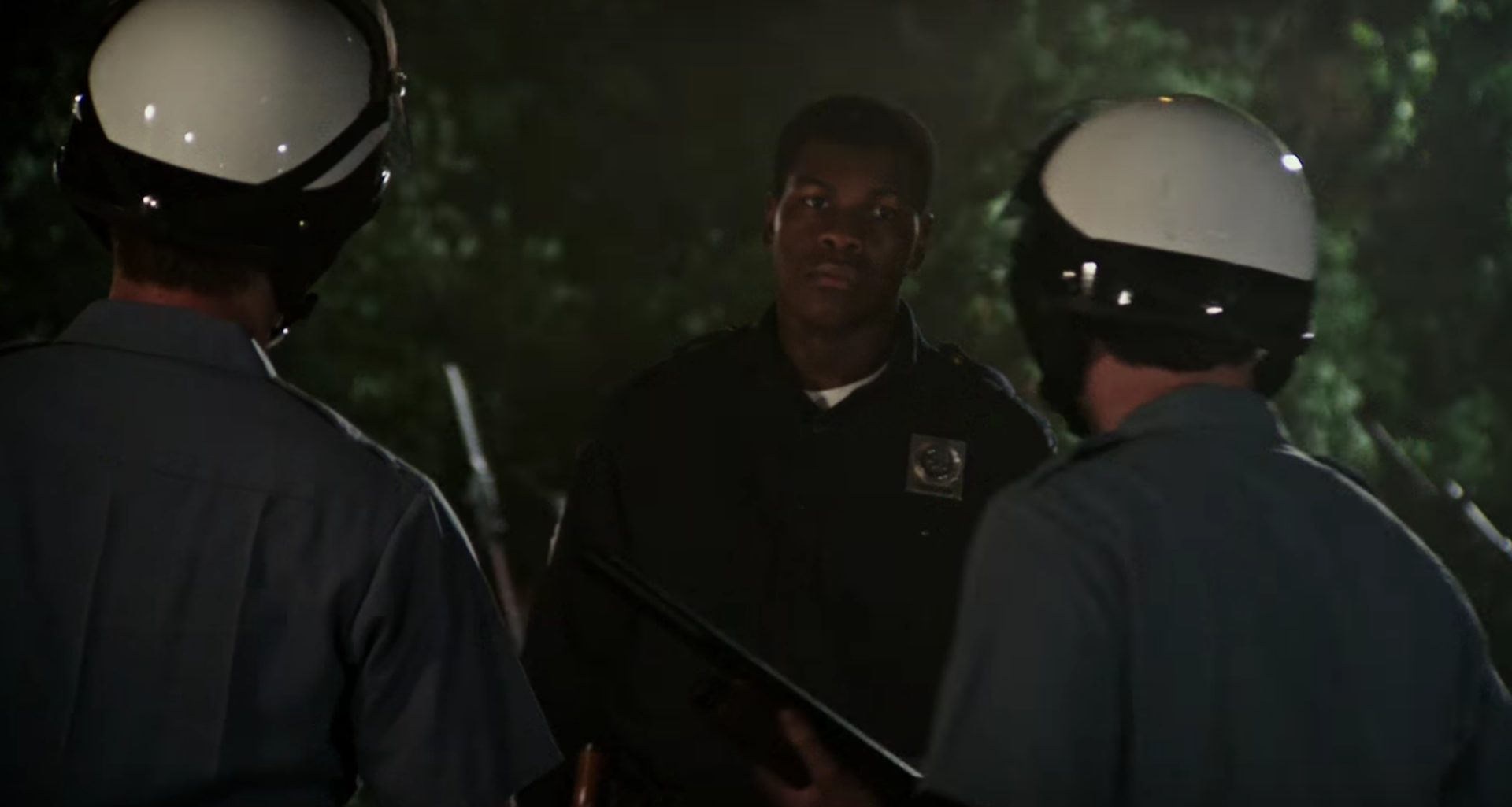Legend has it that out of the ashes rises a phoenix. With every ending begets a new beginning. In April 2017, the band Letlive ended their storied 15 year existence. Within a couple of months, on a U-Haul truck in the parking lot of Randy’s Donuts in Inglewood, California – The Fever 333 was born.
Community, charity, and change. This is the foundation that the band is founded upon. Butler, along with former the Chariot guitarist Stephen Harrison and Night Verses drummer Aric Improta weave through genres of music with aggressive intent on making a difference. With their first ep, 2018’s Made In America, and their debut album, Strength in Numb333rs, each release feels like a call to collective action. It won’t be long before you realize while listening that the fever, the fire to challenge things in order for them to be better is within you, too.
We caught up with front man Jason Aalon Butler to talk about their debut album, Strength In Numbers‘ community, rock music today, and more.
Substream: One of the first records you guys put out, “Made In America”. The first song with that energy acknowledges both the good and bad in America. There was this notion that America is number one in everything. Can you go into making that song and if we as a country are more cognizant that we need to improve in areas?
Jason Butler: Yea, I think it’s understanding how we got here. Understanding ourselves as a world power. We understand ourselves as a country that nationally reveres itself as great. I feel like we have a lot of things that we have to look at on how we got to this point. We exploited a lot of people’s bodies and cultures in order to get a leg up on the rest of the world. We should cast it aside because it doesn’t fit the narrative of “sunshine and rainbows” on a path to greatness.
We need to pay attention to our indiscretions. The things that we did wrong as well as the things we do right. A lot of it was specifically talking about bodies of color – exploiting those bodies. The women that have been subjugated through a patriarchal system that is still happening today. Stating those things so we can fix them.
That’s really what I’m asking for – I’m not saying we’re doomed and fucked. We need to acknowledge a very troubled past in order to define our future and evolve into a better way as a country. I think because of technology, large globalization, and people getting to experience new cultures, we see there’s a better way to approach things. I think with this generation specifically, people are a little more willing to accept more than the narrative that was said – whether it be by societal construct or institutions like school. A lot more critical thinking is being introduced and accepted by the youth today.
That ties into my next question because I know after the band’s demonstrations, you talk to fans. You take in a lot of opinions from many sides. Social media has made us more polarized where we are more so talking at each other. How do you all discuss things after these demonstrations with people from different viewpoints? Is it better face to face?
Jason: Yeah. We are not responsible for the energy of these conversations when we have them on the internet. You don’t have culpability when you’re behind a screen thousands of miles away. The words that you speak and the energy you put for is not tactile. It’s not tangible. It’s also a lot of times without thought. It’s to get a rise. I think there are a lot of methods that are being used on the internet that people would not do in person because there’s a responsibility that you would bear in person and you would not on the internet.
What we do – whether that be a demonstration, a rally, or a talk. We try to create a space that is safe for everybody. Ourselves or adversaries, if you will. People with different views than our own. I think we’ve tried enough or war and violence. I’m really not here to tell anybody that I have the answer. None of us have the answer. However, we are willing to search for that answer through conversation.
Also, understanding that a safe space – what that really means is that some people can feel space in their beliefs, but if your beliefs encroaches on another in a harmful way that is degenerative to their existence. Objectively, that’s more of an ineffective, problematic side to take for progress and people. I’m not trying to single anyone out, but I will single out things like racism and sexism. Leveraging power against other people. That’s what I like to talk about a lot. I don’t think people pay attention to those things when they need to. Not aware of the damage they are doing to other people and themselves, too.
The intro to your debut album, Strength In Numbers, it definitely feels and sounds like a coming together. The Fever 333 can be anyone. Like the Spider-Man motif, “anybody can be behind the mask.” Although, there are very personal songs to you, it feels like anybody can join in with any positive cause they have. When the band came together, did you want it to embody that spirit?
Jason: I wanted to create a platform just for everybody to understand, but also be very distilled in our message. For everybody to see that right now, there are people in subjugated scenarios that have been affected by the way of engineering. Whether that be socially or politically. Making sure that all of us can understand thing and offering empathy. Anyone can be a part of this. This is open to various stories and beliefs, ways and approaches to progress.
The biggest banner that we fly above this platform is power. That power lies within the people and not being tricked by these sources of authority or these systemic things that keep us at odds with each other. Opening that platform for everybody while understanding that there are specific people within that that are much more disadvantaged. It’s not being conjectural biased. It’s fact. It’s written in numbers and statistics. Understanding that once we lift up those people within our platform or within our world – if we get in a place where we all feel a little more equal, then the power that we possess will get stronger.
The first single, “Burn It,” and there are a couple themes I noticed within the album. You mentioned Rodney King, and you witnessed the LA Riots when you were a child. The first thing I noticed a mention of fire as a cleansing. Fire is normally chaotic, even untamable. Listening to the album, this fire is within you to make change. There’s also the “gun” metaphor whether you are the gun, being shot out of one, etc. Was there a consciousness to make these things story lines within the album?
Jason: I was hoping to offer a couple concepts that were reoccurring and shaping them in ways that could be seen by different sides. I wanted to be multi-dimensional. Taking the same motif, ideas, and using those things in different scenarios. Shifting the perspective depending on what was being discussed or the stance I was taking as the narrator to that story.
The album itself is very musically ambitious. A lot of beat switches. A lot of plays with tempo. “Out of Control,” “Prey For Me,” and “Inglewood,” feel like you’re listening to two songs within the same experience. Two different emotion. How was recording this album?
Jason: If I can be completely honest, I feel that music and art are meant to challenge everything that we think is normative behavior or structure. Art has precipitated every revolution. Every renaissance. Art is always the catalyst for change. If you’re trying to amplify or launch into something new, you have to take the risk that is inherent to what it means to be artistic.
With rock music in particular, I feel that there is a sense of sterility that we’ve been faced with. We haven’t challenged it enough and we feel confronted by the idea of evolving rock music when, I think we should be welcoming it. I think that’s how music has been able to survive in the first place. The idea of rock music was born through adversity and different mindset. We had chain gang, blues, rock-n-rock. Now we have this. What is this?
I think that our fear of not remaining pure or whatever that means is what is harming rock music. With this album – my first love is hip hop and R&B. I always have looked to them for guidance and to what I thought was revolutionary. A lot of hip-hop music is going a punk rock route sonically. This album is a way to introduce listeners and ourselves a new way into guitar-based music.
“Inglewood” is probably the most deeply personal song in terms of your experiences growing up and a very emotional listen. You can feel what you’re saying. Was that a cathartic process for you to get that song on the album?
Jason: I just think it was really a way to explain to people why I say what I say. Why I do what I do. It was a way to introduce people into my life for them to understand that I don’t say these things based on the things that I read, but these are things that I’ve experienced. It’s my truth. I can’t be lied to or have that taken away from me because it’s my experience. So with that song, I was hoping to act for a sense of empathy for those who understand what I’m saying. At the same time, those who may not.
“Out of Control” is my favorite song on the album. Especially because of what the two parts of the song convey. The first part, “tell me that I’m worth something.” The second part: I’m in a league by myself. This album invokes a confidence. How important is it to you for fans to build that confidence within themselves?
Jason: I think that’s the biggest piece of any parts of change. We discussed change and all these things. First things first; it’s hard for you to give a fuck about anything you do or anyone else, if you can’t give a fuck about yourself. You know what I’m saying?













